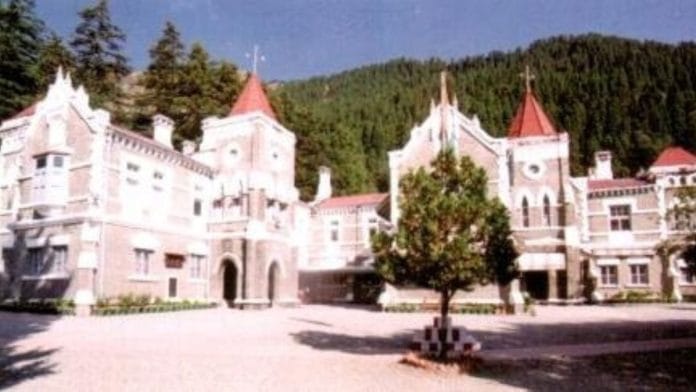New Delhi: The Uttarakhand High Court has ruled that a husband cannot be tried for anal sex with his wife under Section 377 (carnal intercourse against order of nature) of the Indian Penal Code (IPC), because of the marital rape exception under Section 375 (rape) of the IPC.
In a judgment delivered on 19 July, Justice Ravindra Maithani concluded that “no offence under Section 377 IPC is made out” against the husband, citing exception 2 of Section 375 of the IPC. Section 375 of the IPC defines the offence of rape but carves out an exception for sexual intercourse between a married couple.
“If an act between husband and wife is not punishable due to operation of Exception 2 to Section 375 IPC, the same act may not be an offence under Section 377 IPC,” the court observed.
The court was hearing an application challenging a chargesheet and summoning order passed in April 2019 by a trial court judge in Haridwar. The FIR against the petitioner was filed in 2017 under Section 377 of the IPC as well as provisions of the Protection Of Children From Sexual Offences Act (POCSO), 2012.
As quoted in the high court order, the FIR alleged that the petitioner had anal sex with his wife, due to which she sustained serious internal injuries with bleeding. It notes that she had to be admitted in a hospital because of it, but this did not stop the petitioner. During another such hospital visit, she was asked by doctors to undergo surgery, but the petitioner did not get it done.
She then filed an FIR against him, and the trial court took cognizance of the chargesheet in April 2019, which was now challenged in the high court.
Ruling in favour of the husband with regard to the application of Section 377, the court observed, “The act alleged also falls within Section 375 IPC and by operation of Exception 2 to it, a husband cannot be held guilty under Section 375 IPC for such an act. In such a situation the provisions of Section 377 IPC cannot be invoked against the husband.” It, therefore, opined that Section 377 IPC is not prima facie made out against the husband.
Also read: After 16 years, SC comes to rescue of visually impaired CSE 2008 candidates, directs appointment
‘Issue of wide ramifications’
In its judgment, the court noted that the case had an issue of “wide ramification”, asking, “The question that requires [an] answer is, as to whether a husband can be prosecuted under Section 377 IPC for anal sex with his wife?”
The husband’s lawyer had submitted that the Supreme Court, in the Navtej Singh Johar judgment, had ruled that the consensual acts of adults in private do not amount to an offence, and since in case of married couples, the consent is informed and not required on each occasion, the offence under Section 377 won’t be made out.
To answer the question, the court heavily relied on the Navtej Singh Johar judgment, which partially struck down Section 377 of the IPC, decriminalising same-sex relations between consenting adults. It also relied on a Madhya Pradesh High Court judgment, which had ruled that a husband cannot be liable for non-consensual “unnatural sex” with his wife under Section 377.
The court pointed out that the exception to Section 375 originally said, “Sexual intercourse by a man with his own wife, the wife not being under fifteen years of age, is not rape.”
However, it was subsequently amended to read: “Sexual intercourse or sexual acts by a man with his own wife, the wife not being under fifteen years of age, is not rape.”
The court then noted that anal sex, which may be an offence under Section 377, is also covered under Section 375. It went on to rule that the exception under Section 375 of IPC cannot be removed while reading Section 377 in relation to husband and wife.
POCSO case to continue
In her complaint, the wife had also alleged that her husband used to show “bad scenes” to their child — aged between eight and 10 months — on a laptop to force the wife into giving in to his demands for anal sex or forcible oral sex.
His lawyer now told the court that here the intention to show the such scenes on the laptop was not sexual harassment of the child, but to pressure his mother. However, the court noted that the wife had also alleged that the husband would urinate in front of the room, show his private parts to the child and would also commit oral sex forcibly in front of the child.
The child had also, in the statement under Section 164 of the Criminal Procedure Code (CrPC) before the magistrate, said that his father does “gandi gandi cheezein”.
The court therefore ruled that his trial would proceed under provisions of the POCSO Act, observing, “Exhibition of private parts to a child, showing him dirty films, as told by the child himself prima facie makes out an offence under Section 11 read with Section 12 of the POCSO Act.”
(Edited by Radifah Kabir)
Also read: From Shah Bano to marriage laws: What SC said about maintenance for Muslim women






